The true story of a woman who, essentially, ruled China for almost 50 years is cloaked by years of inaccurate (read: fabricated) reporting and several sources muddled through translation. Sometimes it feels as if her history is behind the same silk screen where she ruled, a clear outline with veiled detail.
So this’ll be fun!

Yehenara Tsing was born on November 29, 1853. Her name changes several times through her life (and more through translated spellings): Tsing (some sources use her family name which appears first), Lan, Yi and finally the form that she is known to history: Cixi.
Or spelled Tzu-hsi. (Fun, right?)
She was born into China’s ruling class and, at 16, entered the Forbidden City as a chosen member of 19 year-old Emperor Xianfeng’s harem. Her role: Live out of view of men (except for eunuchs and the emperor) and bear sons to slip into the line of succession.
Which she did. Atta Girl!
Then she boldly stepped beyond that role when she became co-regent to her young son, the Emperor, and her adopted son after that.
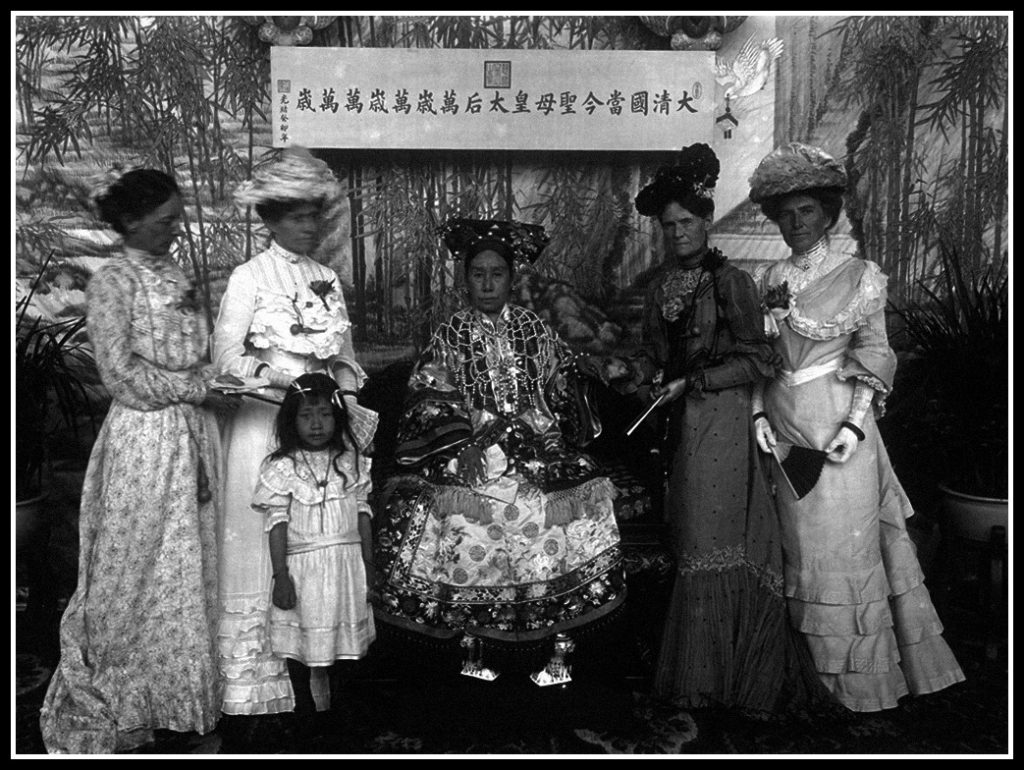
After the Boxer Rebellion the Empress began to entertain western women who found her happy and charming….despite how she looks in this photo. Public domain, wikicommons
Cixi’s story has all the elements of a good movie : a unique, life-long friendship and collaboration with the woman who was just a step above her on the hierarchy ladder, Empress Zhen, of wars and political gamesmanship, of enemies invading and enemies within, and of well thought out decision making (with a side order of some less than admirable decision making.) She walked a fine line between respecting the cultural integrity of China and introducing Western modernization in an attempt to improve life for her people. There are sub-plots of greed and cruelty that could also be read as propaganda, scapegoating and a royal interest in her comfort and appearance. And the ending? Epic.
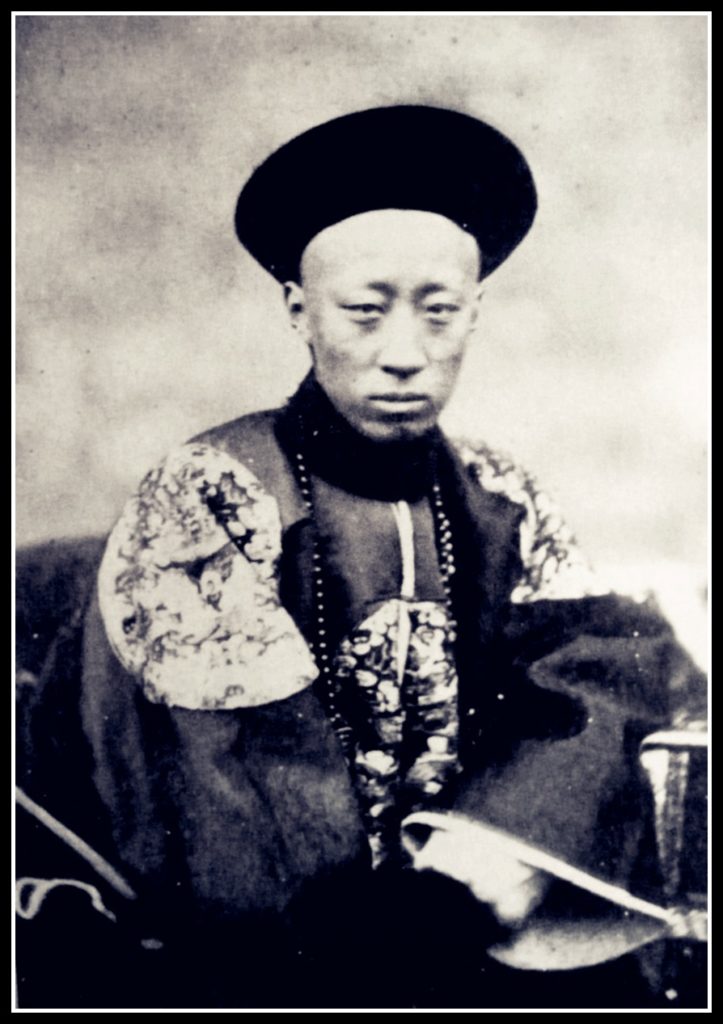
Prince Gong, the one who was the public face of her decisions.
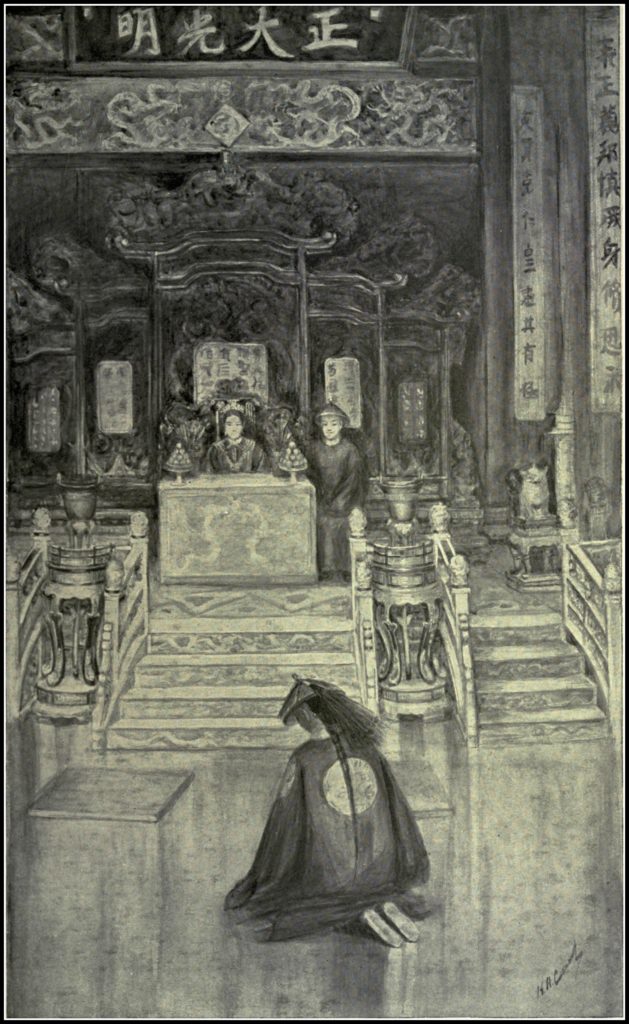
Official Audience of Their Majesties, Katharine Carl, 1905 Public domain, wikicommons
While the China she left when she died in 1908 was a shadow of the China she was born into 72 years before, in some aspects it was improved, and some it was not. She did leave the country a visible player on the world stage and with modern improvements that connected China to that world.
Some would call that an improvement…and some would not.
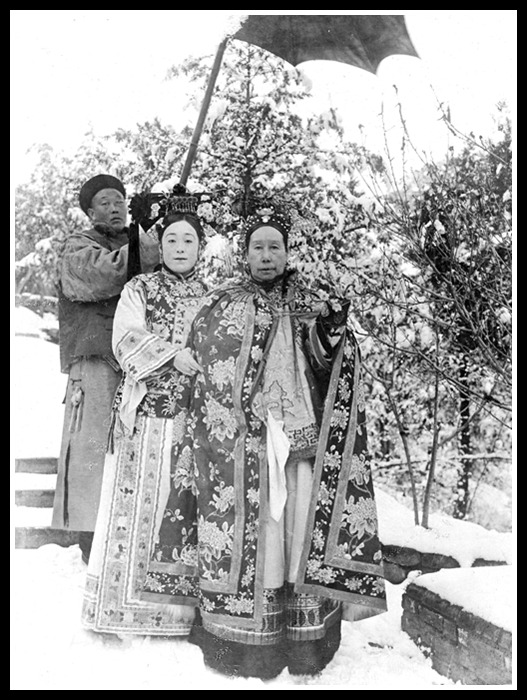
Cixi LOVED to be photographed, if only those photos could talk we would have her side of her story
TIME TRAVEL WITH THE HISTORY CHICKS
Books!
Artist Katharine Carl lived in among the Imperial Court for a year painting not on the Dowager Empress Cixi, but others and then she wrote about her experiences. That book is available online, With the Empress Dowager by Katharine Augusta Carl
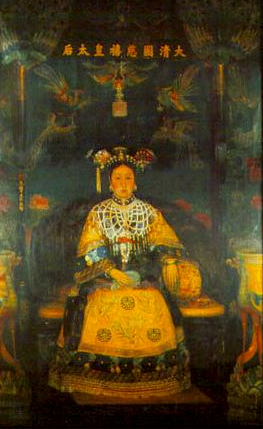
Katharine Carl’s portrait (public domain, original in Smithsonian)
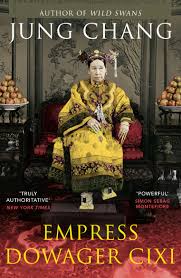
The most recent, by Jung Chang

Sterling Seagrave
Web!
We gave it our best try (and our deepest apologies) but you give it a go!
In Cixi’s world eunuchs were ever present and served the court in a number of ways. You might be surprised at some of their history, read about them in this Ancient Origins piece on eunuchs.
Get your Forbidden City bearings straight (and images of it in your head)- this video is a little long, but it’s really pretty:
And the Summer Palace is still stunning (even if the cost of it helped China lose the Korean Peninsula). Here is some photos and information about it, but if you go, please post a picture on Instagram with the #historychicksfieldtrip so that we can live vicariously!
Sir Edmund Backhouse (“It’s pronounced, ‘Bacchus.” Sure it is, Buddy.) was quite a scoundrel and storyteller, too bad people assumed the journalist was telling the truth in his books about his time in Imperial China with Empress Cixi. NY TIMES , and more HERE. And here is a link to his book of lies (you’re going to need a screen bigger than a phone to read this one) China Under the Empress Dowager: Being the History of the Life and Times of Tzu Hsi, Compiled from State Papers and the Private Diary of the Comptroller of Her Household (pretentious title much?) by J.O.P. Bland and Edmund Backhouse (We’re not even putting this in the book section, take that Backhouse!)
How do you text in Chinese? Here’s a Slate article about just that!
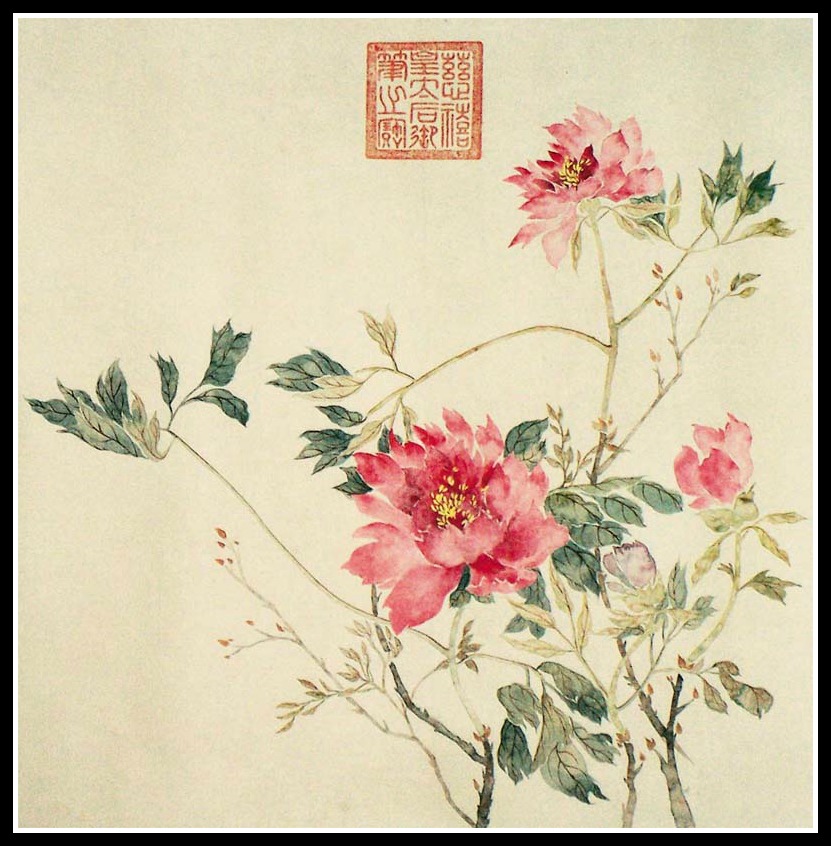
Cixi was an accomplished painter, this is one of hers


